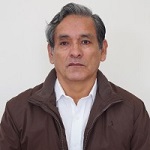
Section Collection Information
“Nature, to be commanded, must be obeyed.” – Francis Bacon (1561 – 1626). What is science, what makes science and what quantifies and qualifies the transformation from observation to theorisation and then to realisation within science? Rational life, by efficacy and superiority, derives the right to subjugate anything and everything under its dominion to allow for its own survival and flourishing. Survival of humans depends on manifesting their will through rigorous classification and alteration of nature, with technology being their most potent and versatile weapon through gaining knowledge and applying it. “We gain knowledge by an inductive discovery process. Whether we consider the scientific genius who first made a discovery, or the student who is learning about it, the process is essentially the same. It begins with observations and low-level concepts, and moves by means of experiment and mathematics to higher-level concepts, generalizations and theories. Every logical step of the way, the discoverer must integrate the new evidence within the total context of his knowledge." – David Harriman. Inductive reasoning is a method of reasoning in which a general principle is derived from a body of observations using cognitive learning. The theoretical sciences are the building block to enacting applications in the practical realm – i.e. technology – which are then built upon the building block that is epistemology (the branch of philosophy concerned with knowledge).
Papers submitted to the Philosophy of Science Section generally cover the philosophical thinking of science from learning to theorisation and from theorisation to realisation, which helps boost intelligent ways of implementing science with improved scientific methodologies, which then leads to scientific revolutions.




